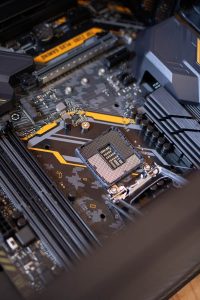Every night after running a deadline, you might turn off your computer. If so you are not the only one. According to a survey from Panda Survey, 37% will press “Shutdown” when finished. But is that 37% really doing the right thing?
How harmful is the improper shutdown of the computer?
Leaving a computer on all the time is less damaging than turning it off and on multiple times a day. Every time the computer powers on, it gets a small increase in power as everything runs, and if you turn it on multiple times a day, this will shorten the life of your computer.
The risk is greater for older computers. For example, traditional hard drives have moving parts, while solid state drives do not and are therefore much more powerful. Mechanical parts will eventually fail and their constant use will inevitably wear out. Computers also heat up when turned on and we all know heat is the enemy of all parts.
Incorrect shutdown of the computer can cause damage to the computer’s hardware.
Some devices in a computer have a limited lifespan. For example if the LCD panel is always on, it is only speculated to be able to operate for about 15,000 hours or about two years. For this reason, it is better to let the console timeout and shut down when not in use. Ajay Gupta, director of product management for laptops and PCs at HP, said. “Batteries and hard drives also have a limited lifespan. Allowing them to sleep when not in use will prolong the life of these components.”
So should we power off the computer?
The answer is: It depends on how each person uses computers and the capacity of those computers.
If you are someone who uses the computer as a server, or wants updates or activities to run while you are not near the computer, or simply do not want to wait for the computer to start up, “Sleep” will be your choice. friend. Conversely, if you don’t want to spend extra electricity, or be bothered by notifications or noise from your computer, “Shutdown” will be more suitable.
